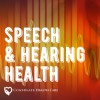The American Speech-Language-Hearing Association celebrates May as Better Hearing and Speech Month. This is a great opportunity to talk with your senior loved ones about the importance of speech and hearing health. Here are some topics to bring up:
Hearing loss
It is very common for older people to have some degree of hearing loss. This natural condition is called presbycusis. While it’s normal with age, simply standing by and letting a loved one’s hearing worsen is not a good idea. There are many ways an audiologist or hearing health specialist can help a senior who is experiencing hearing troubles. Take your older loved one in for a hearing appointment. There, the professional will test his or her auditory abilities with a series of examinations and tests. If there is a problem, the audiologist will suggest solutions such as better ways to communicate with the hearing-impaired individual and potentially using hearing aids. These tiny devices are incredibly helpful and can enhance a senior’s quality of life as well as protect his or her safety.
Speech therapy
Seniors are at risk of experiencing strokes and dementia. These conditions can lead to speech impediments like slurring and even confusion that makes coherent speech difficult. Older individuals need to communicate to maintain independence and continue relationships, so ensuring they can speak and be understood is of the utmost importance. If your senior loved one is dealing with speech trouble, consider enrolling him or her in speech therapy. Many senior living communities offer such services to help individuals who have aphasia. This condition is a language impairment that makes it difficult for people who have had strokes to speak. The National Institute of Neurological Disorders and Stroke noted that as many as 1 in every 4 stroke survivors experiences this condition. The blood clots that cause these incidents can damage the part of the brain that is in charge of speech, temporarily or even permanently, making speaking and understanding speech difficult. Rehabilitation programs teach older people different vocal exercises to strengthen the vocal cords and larynx, which can weaken with age. Look for a senior community that offers these services if your elder family member or friend may require some help. Many senior residences that provide short-term or post-surgical stays also have speech therapy, a service that can be helpful immediately following a stroke or for people who are dealing with dementia.
Explain your concerns
Some loved ones have trouble telling their elders about health concerns for fear they are overstepping their boundaries. If you are concerned a senior may have hearing loss, it’s very important that you speak up. Most people with the condition are unaware of its effects because it seems natural to them. Seniors may also avoid going to the doctor or audiologist because they are simply afraid. If this is the case, offer to go along for an appointment to provide emotional support and be an advocate for the older person. Your company and assistance will be greatly appreciated.

If you found an error, highlight it and press Shift + Enter or click here to inform us.



